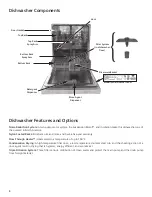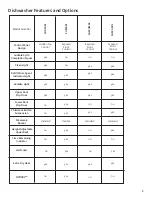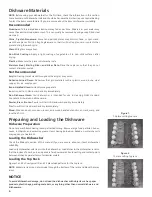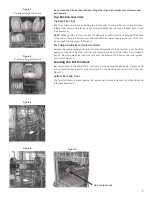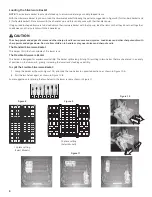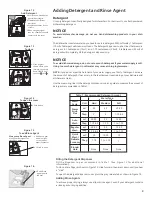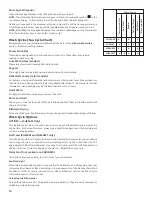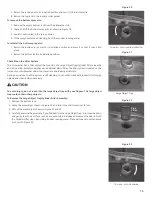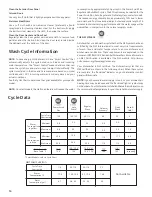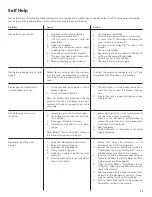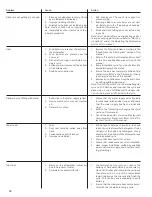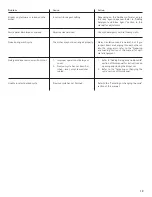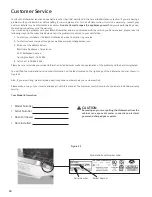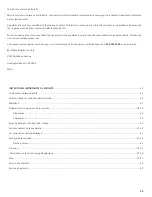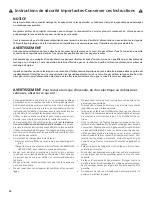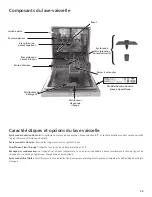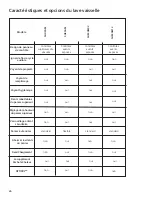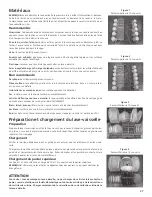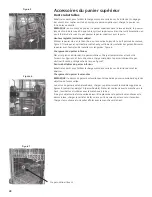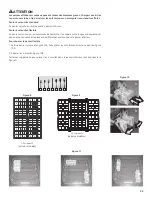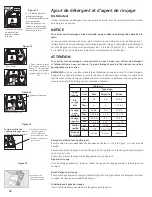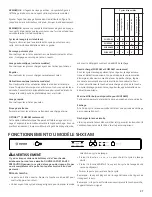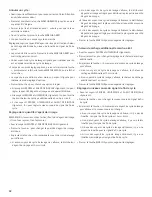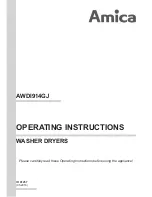
17
Self Help
Dishwashers may occasionally exhibit problems that are unrelated to a malfunction of the dishwasher itself. the following information
may help you with a dishwasher problem without involving a repair professional.
Problem
Cause
Action
Dishwasher does not start
Door may not be properly latched.
1.
unit may not be turned on.
2.
unit not reset or previous cycle not
3.
completed.
Delay start engaged.
4.
interruption of electrical power supply
5.
to dishwasher or blown fuse.
Child lock activated (select models).
6.
the door may have been closed with-
7.
out first selecting a cycle.
Water supply may not be turned on.
8.
shut the door completely.
1.
press the main power switch to turn unit on.
2.
To reset, refer to “Canceling or changing the
3.
cycle” section in this manual.
To reset, refer to “Delay Start” section in this
4.
manual.
Check circuit breaker.
5.
Deactivate the child lock. Refer to “Child Lock”
6.
section in this manual if applicable.
select a cycle and close the door.
7.
Check and turn on water supply.
8.
Dishwasher beeping (end of cycle
signal)
Default factory settings alert the customer
that the cycle has completed by beeping.
this feature can be deactivated if so de-
sired.
To adjust the volume or deactivate, refer to “Cycle
Completion signal” section in this manual.
Display does not illuminate or
console lights are not on
a fuse may have been blown or circuit
1.
breaker tripped.
Door not closed or latched.
2.
Note: For models with controls on the top
portion of the door, the display only illumi-
nates when the door is opened and controls
are visible.
Check the fuse or circuit breaker box and re-
1.
place the fuse or reset the breaker if neces-
sary.
ensure that door is properly latched and com-
2.
pletely closed.
Dishwasher seems to run a
long time
incoming water is not warm enough.
1.
Cycle time can vary due to soil and wa-
2.
ter conditions.
rinse agent dispenser is empty.
3.
Dishwasher connected to cold water
4.
supply.
Note: Refer to “Cycle Chart Data” section in
this manual for typical cycle length.
Before starting a cycle, run hot water faucet at
1.
the sink nearest to the dishwasher.
sensors in the dishwasher automatically in-
2.
crease the cycle time to ensure a good wash
when heavy soil is detected.
add rinse agent.
3.
Verify dishwasher is connected to hot water
4.
supply plumbing.
Dishes aren’t getting clean
enough
spray arm movement is obstructed.
1.
spray arm nozzles clogged.
2.
improper use of detergents.
3.
filters could be clogged.
4.
Dishes are nested or loaded too close
5.
together.
selected wash cycle is not suitable for
6.
food soil condtions.
ensure that spray arm movement is not
1.
blocked by hand rotating spray arms.
remove the spray arms and clean according to
2.
“Check/Clean the Spray Arm Nozzles” in Care
and Maintenance section of this manual.
increase or decrease detergent depending on
3.
the water hardness. Refer to Table under “Add
-
ing Detergent and rinse agent”.
Clean the filter. Refer to “Check/Clean the Fil
-
4.
ter system” under Care and Maintenance sec-
tion of this manual.
rearrange load such that water spray can reach
5.
all items in the dishwasher. See also “Prepar
-
ing and loading” section of this manual.
Refer to “Wash Cycle” section in Operating the
6.
Dishwasher section of this manual.
Summary of Contents for Ascenta SHE4AM1
Page 22: ...22 ...


